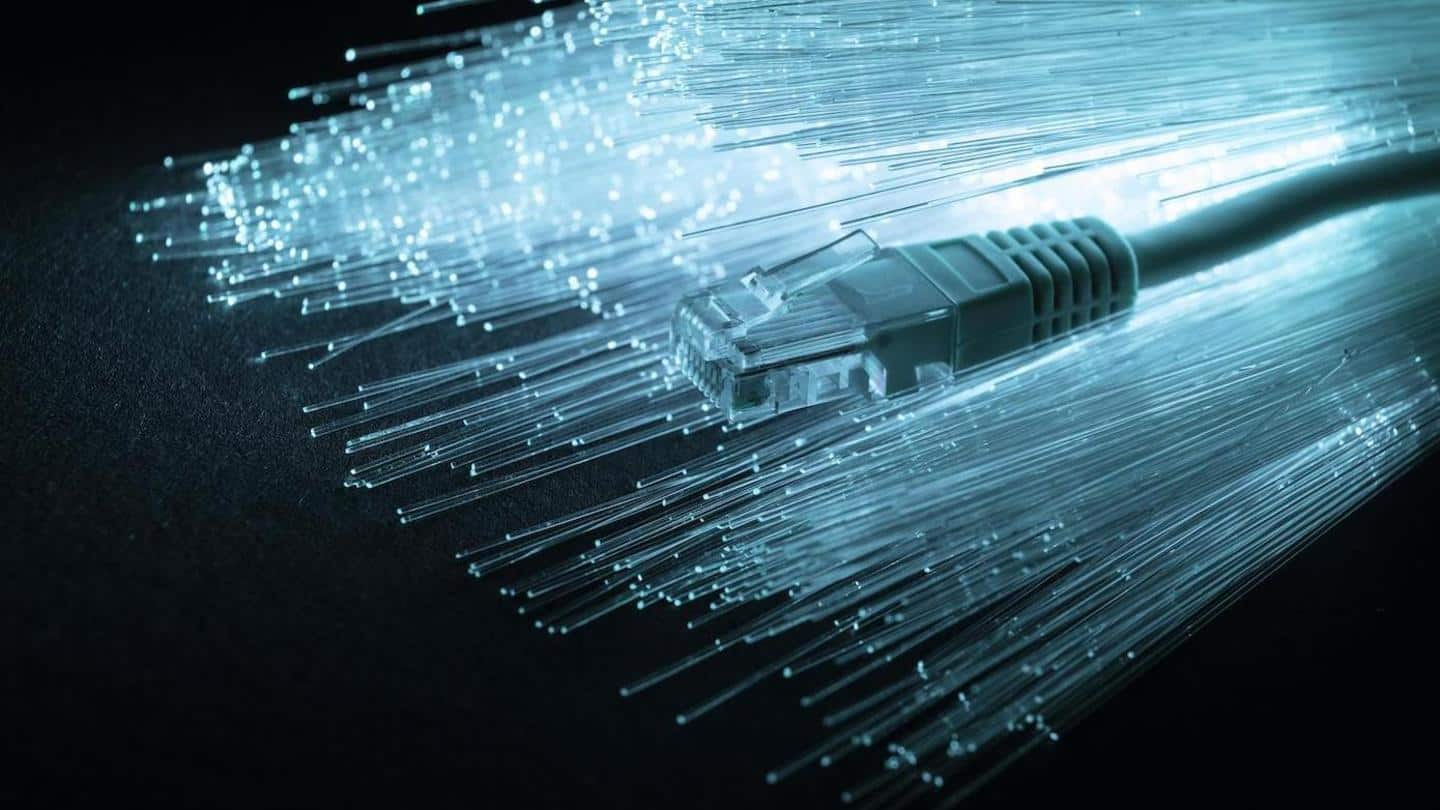
Japanese researchers have set new internet data transfer speed record
What's the story
Most modern computers are capable of gigabit-speed (1 Gbps) wired internet. Meanwhile, organizations like NASA, where the internet is a mission-critical component, enjoy wired internet speeds up to 400 Gbps. While you're probably reading this article on a sub-gigabit connection, scientists in Japan's National Institute of Information and Communications Technology (NICT) successfully transferred data at an astounding 319 terabits per second (Tbps). Here's more.
Experimental tech
NICT team's record speed nearly twice that of previous record
In August 2020, a team of British and Japanese researchers achieved a record transfer speed of 179 Tbps. NICT's record is near twice that speed. While conventional fiber optic cable contains one core of glass shielded by a cladding, NICT's system that set the record used an experimental technology with four cores sharing a cladding the size of conventional cables.
Details
Record simulated transfer across 3,001 kilometers without any losses
Motherboard reported that although the record was broken in a lab, the experimental optical fiber cable was coiled to simulate a transmission across 3,001km without degradation in speed or the data signal. The researchers achieved the breakneck transfer speed using a 552-channel comb laser firing at multiple wavelengths and amplified by devices using rare earth minerals.
Expensive equipment
These phenomenal internet speeds probably won't be publicly available soon
If the aforementioned description didn't give it away yet, the system is incredibly expensive for large-scale real-world deployment. So, it's reasonable to stop dreaming that you will soon be able to download Call of Duty: Black Ops Cold War in a fraction of a second. However, the researchers believe their primary innovation, the four-core fiber optic cable, could give existing systems a speed boost.
Do you know?
Most computing devices can't write data at high speeds yet
While it would be great to witness the eventuality of these groundbreaking internet speeds becoming available to the average user, the cost of fiber optics isn't the sole barrier. Most mainstream computing devices cannot write data to memory at such high speeds yet.
Beyond 5G
Experimental optical fiber technology can give existing system a boost
In a paper detailing their findings, the NICT researchers said that the four-core fiber optic cable can be "cabled with existing equipment" and also hope that "such fibers can enable practical high data-rate transmission in the near-term." The researchers are confident that the new fiber optic technology can contribute to the spread of new communication systems beyond 5G.